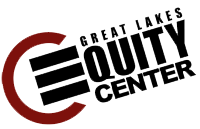Skip to main content
Issues
Select Issue
Retrospective on the Editorship
THE EDITORS
A Critical Approach to Reducing Referrals for Diverse Students At-Risk of ADHD
JOY BANKS,
REAGAN L. MERGEN, and
KIA F. WILLIAMS
In Service of Equity? Exploring Universal Design for Learning's Transformative Potential
BRYAN MASCIO,
BETH FORNAUF,
JENNA W. GRAVEL, and
T. NICOLE TUCKER-SMITH
“We're Building Frameworks”: Administrator and Educator Perspectives on Implementing a Dual Language Pre-K Program to Include All Students
KATHLEEN M. FARRAND,
MEGAN T. DEEG,
SULTAN KILINC, and
MICHAEL KELLEY
Effects of Adapted Dialogic Reading on Oral Language and Vocabulary Knowledge of Latino Preschoolers at Risk for English Language Delays
VIVIAN I. CORREA,
YA-YU LO,
KRISTI GODFREY-HURRELL,
KATIE SWART, and
DORIS LUFT BAKER
The Individuals with Disabilities Education Act (IDEA) and the Equity Imperative: Examining Early Childhood Transitions to Special Education
CATHERINE K. VOULGARIDES and
BRENDA L. BARRIO
SPECIAL ISSUE Voices From the Field: The Migrant Voice
Jorge Gonzalez and
Salvador Ochoa
eISSN: 2158-396X
ISSN: 1547-1888
Powered by PubFactory

